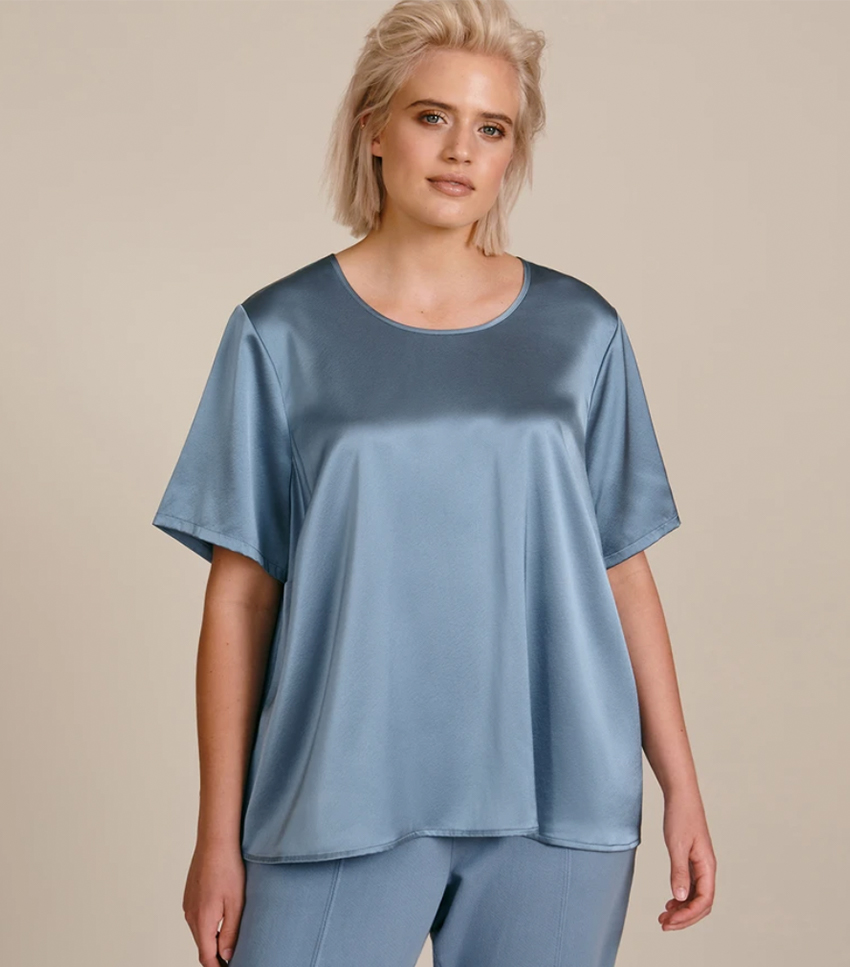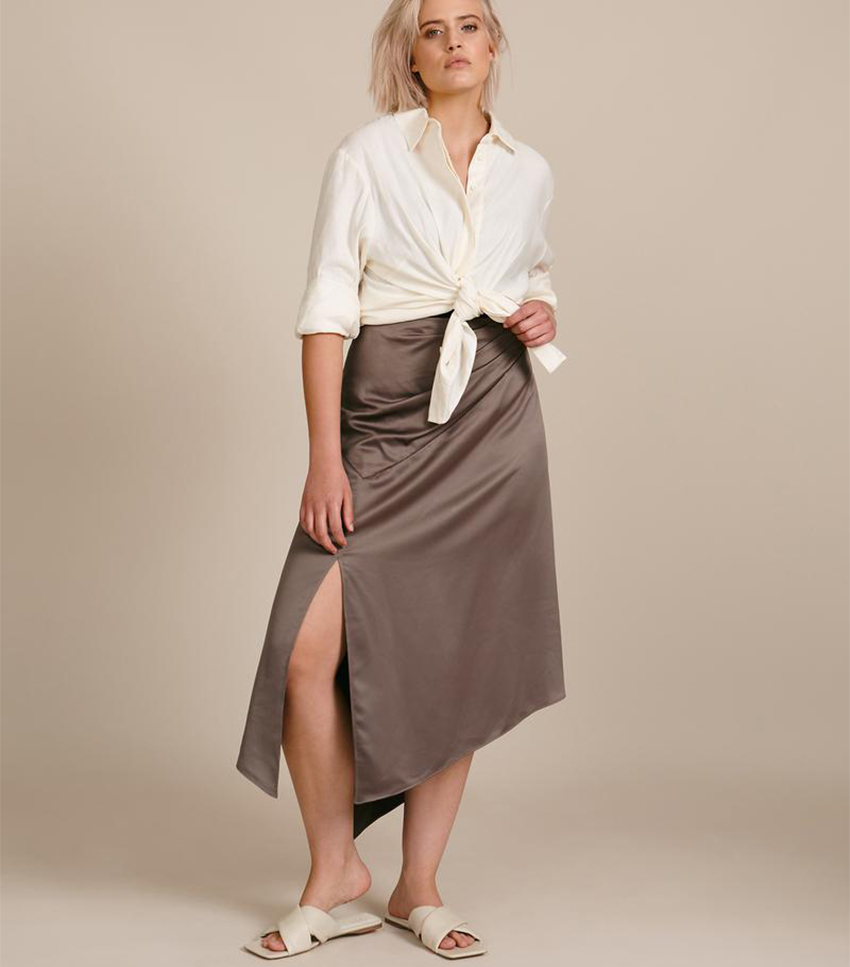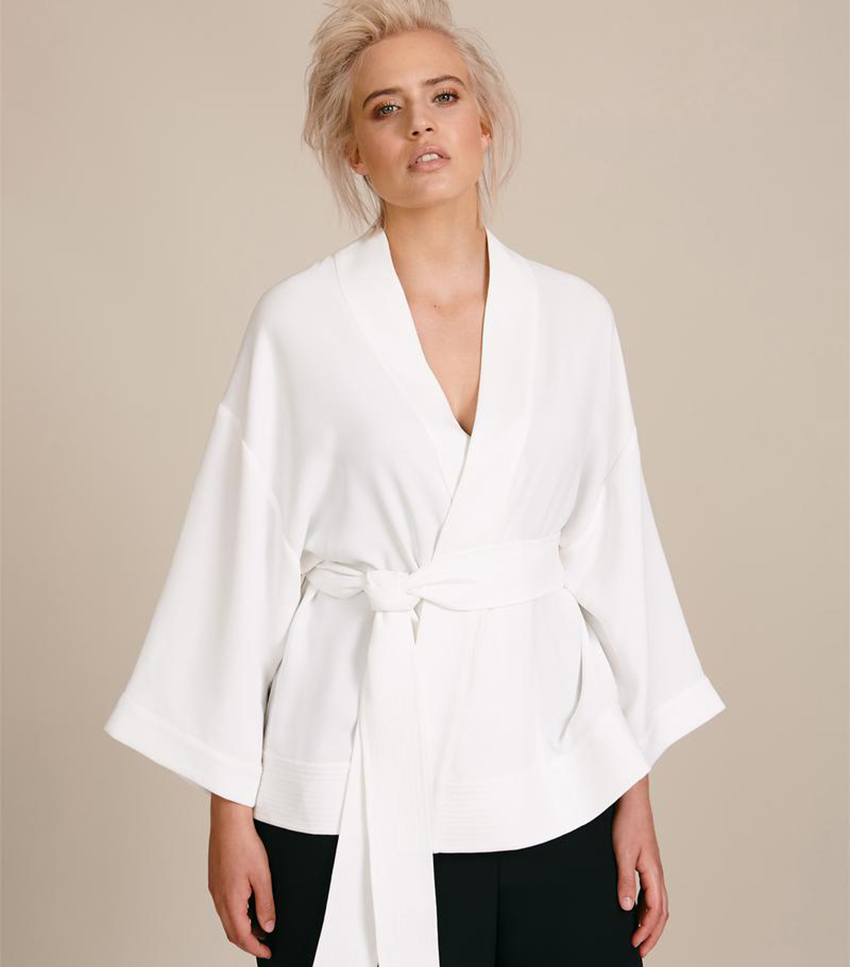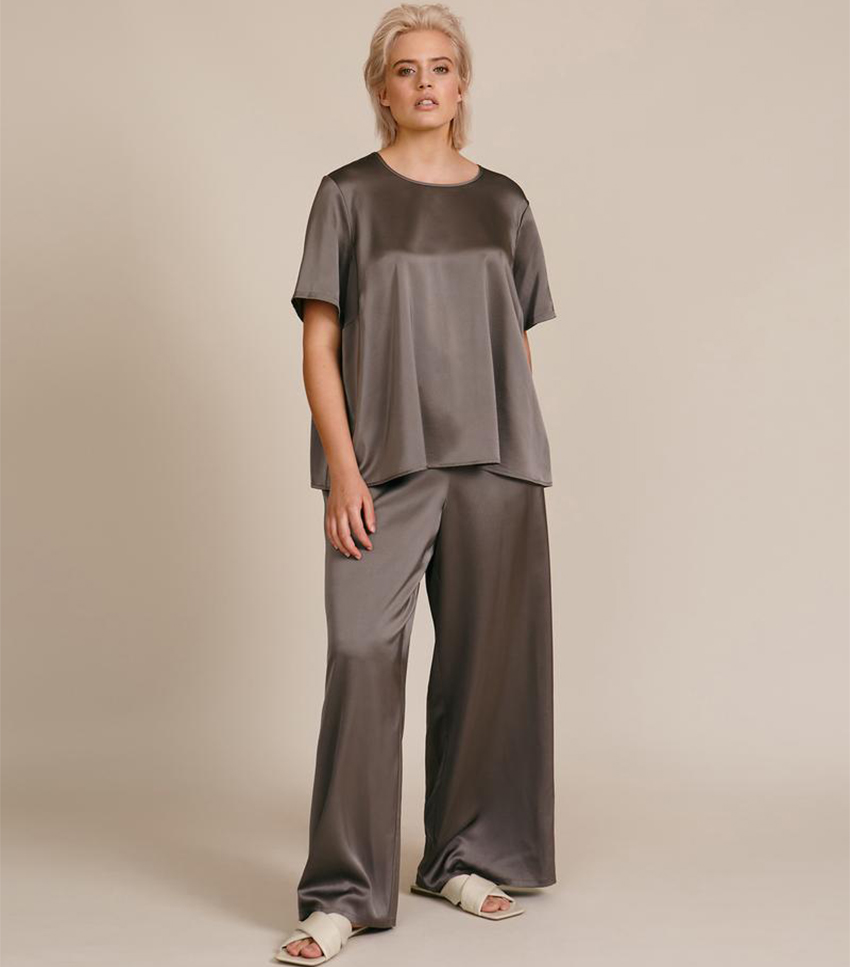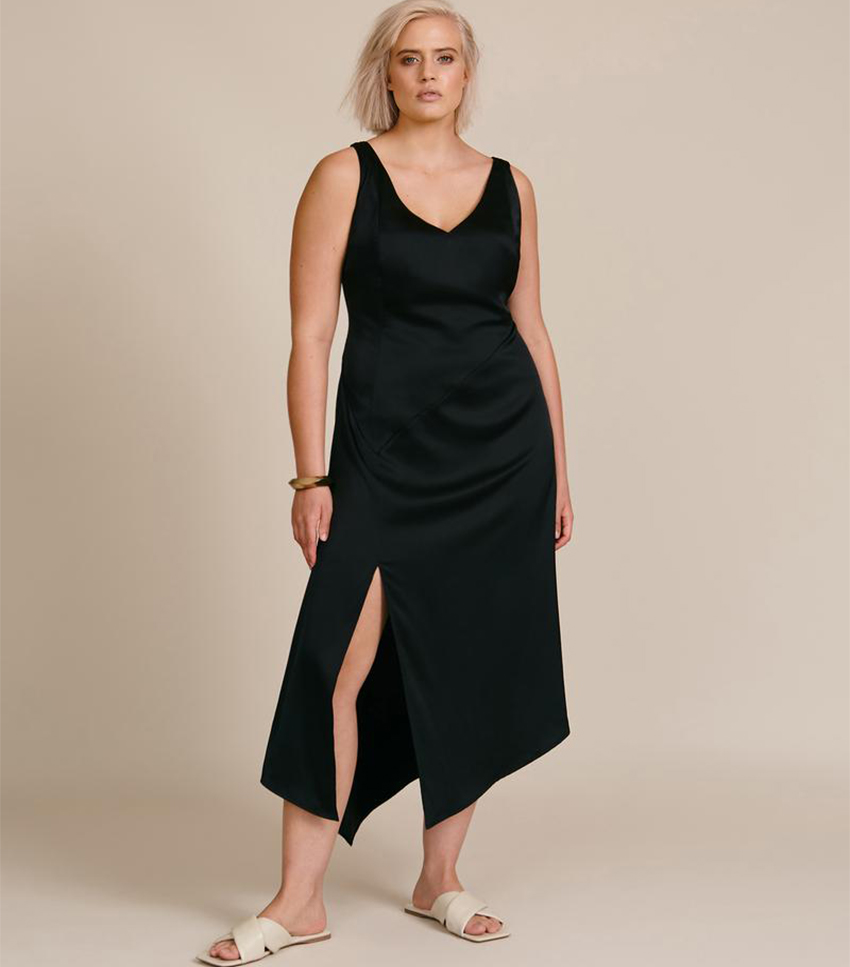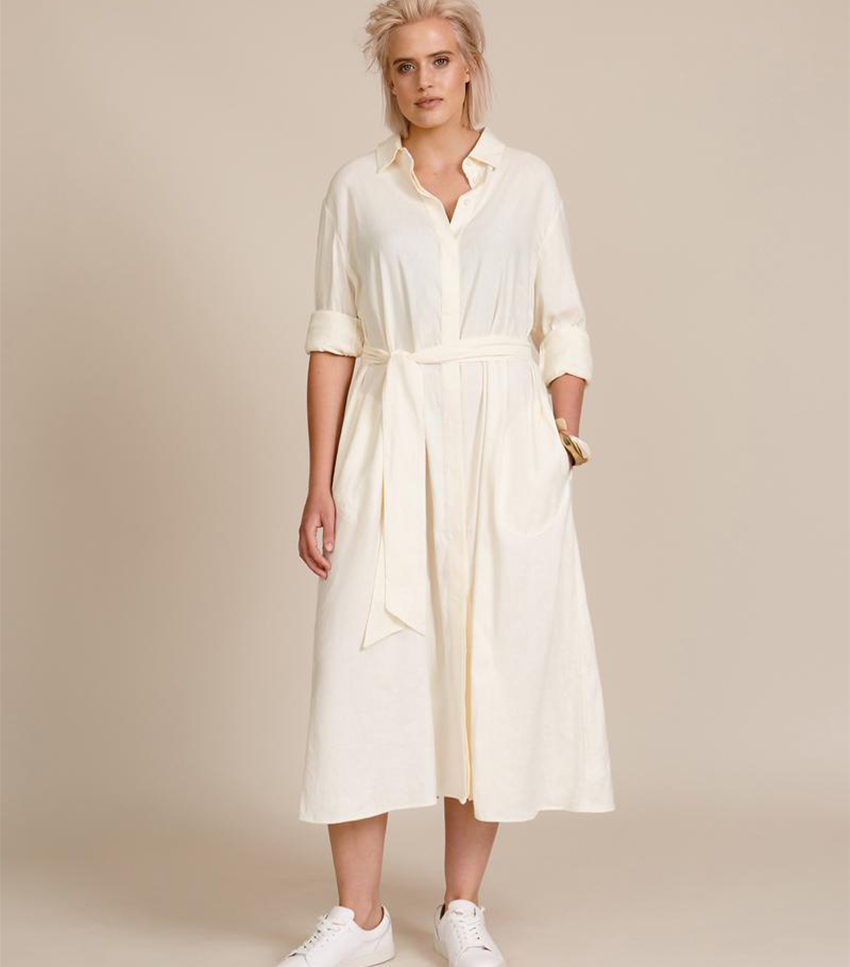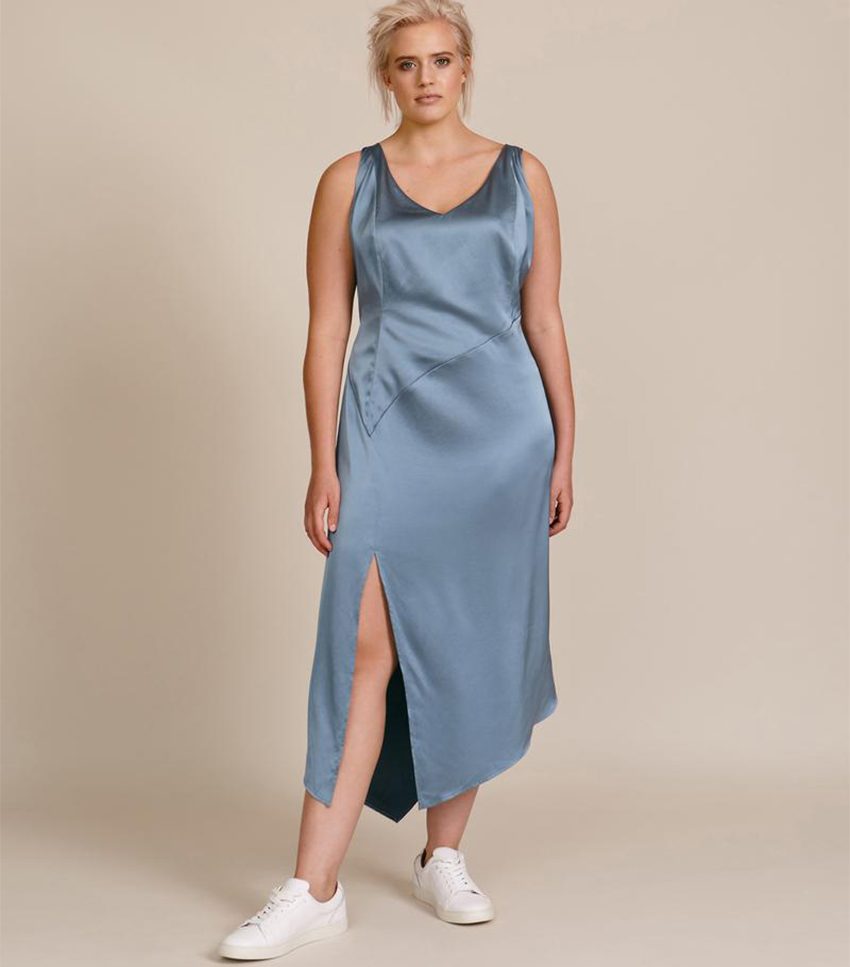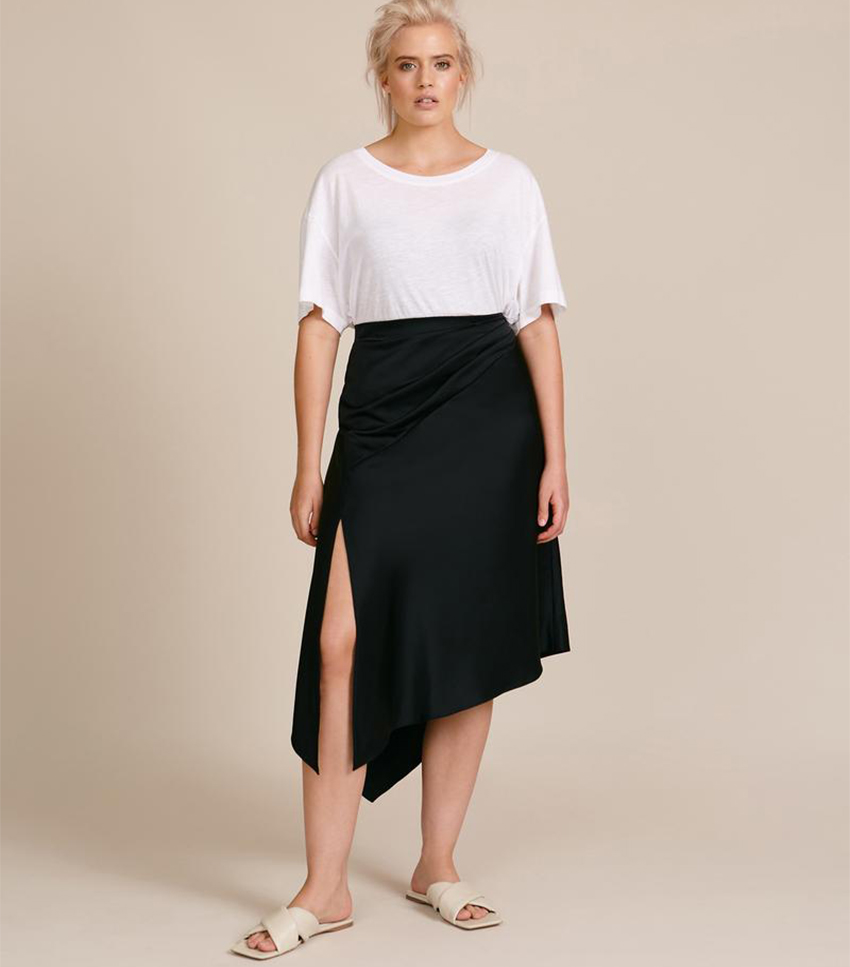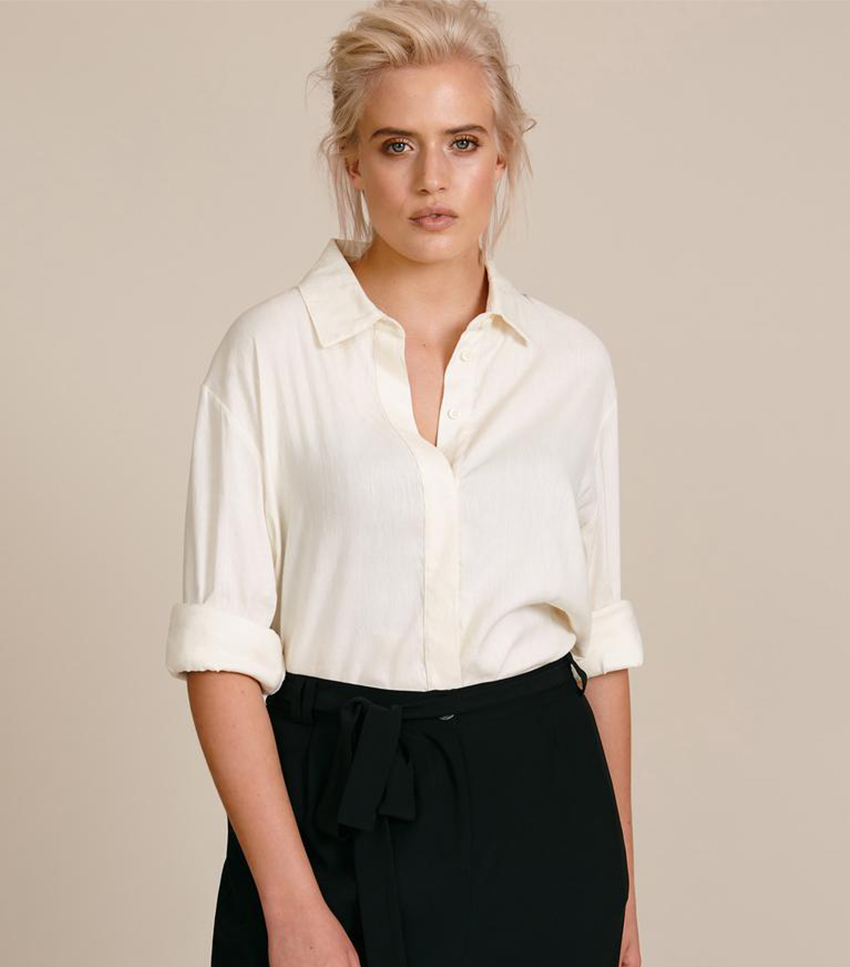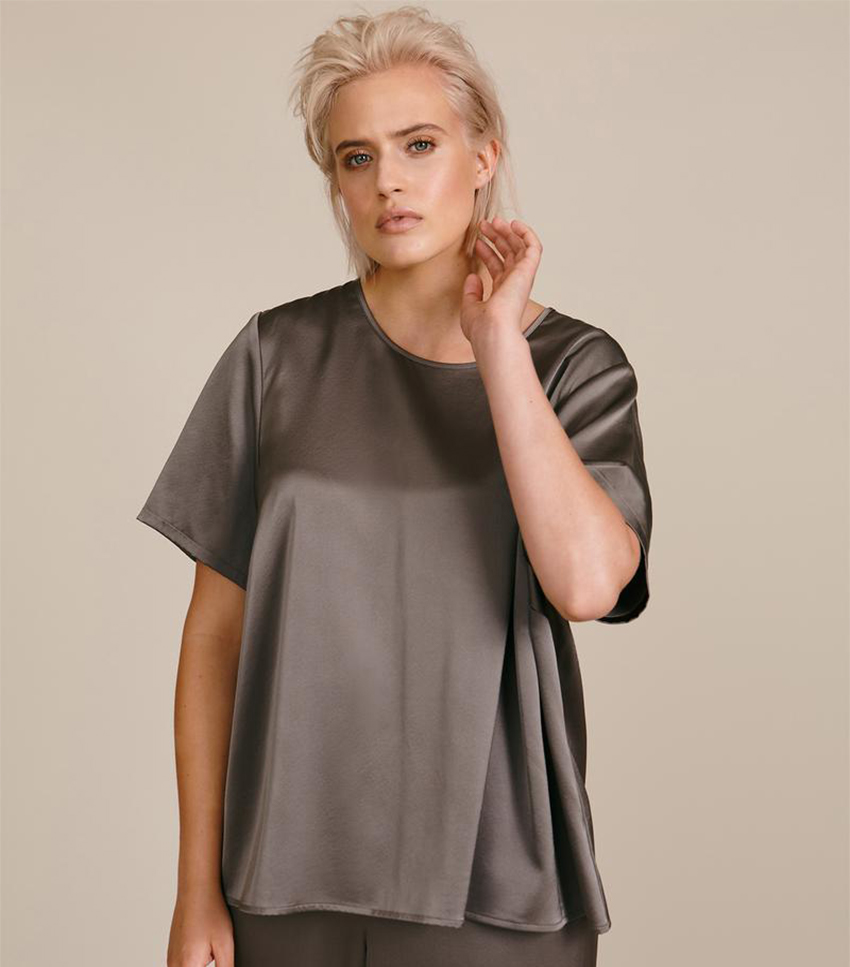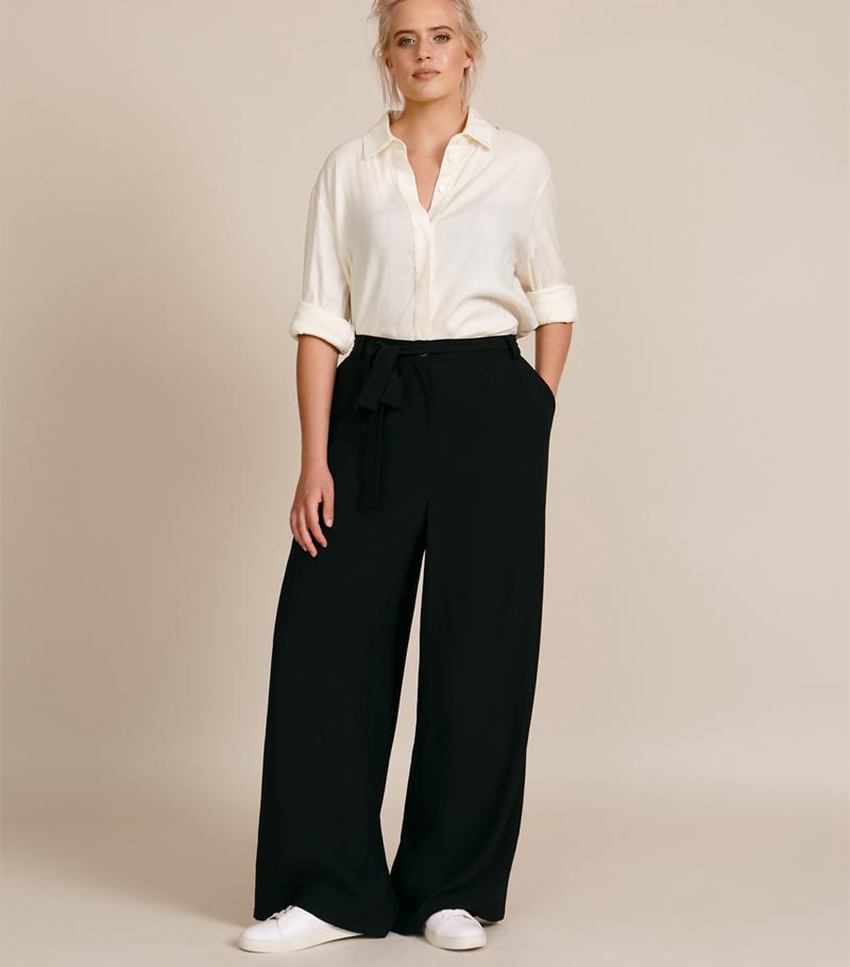Designing for All Bodies: A Look at 11 Honoré's New Label
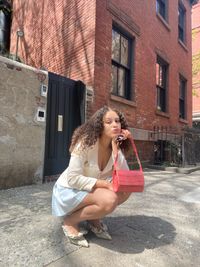
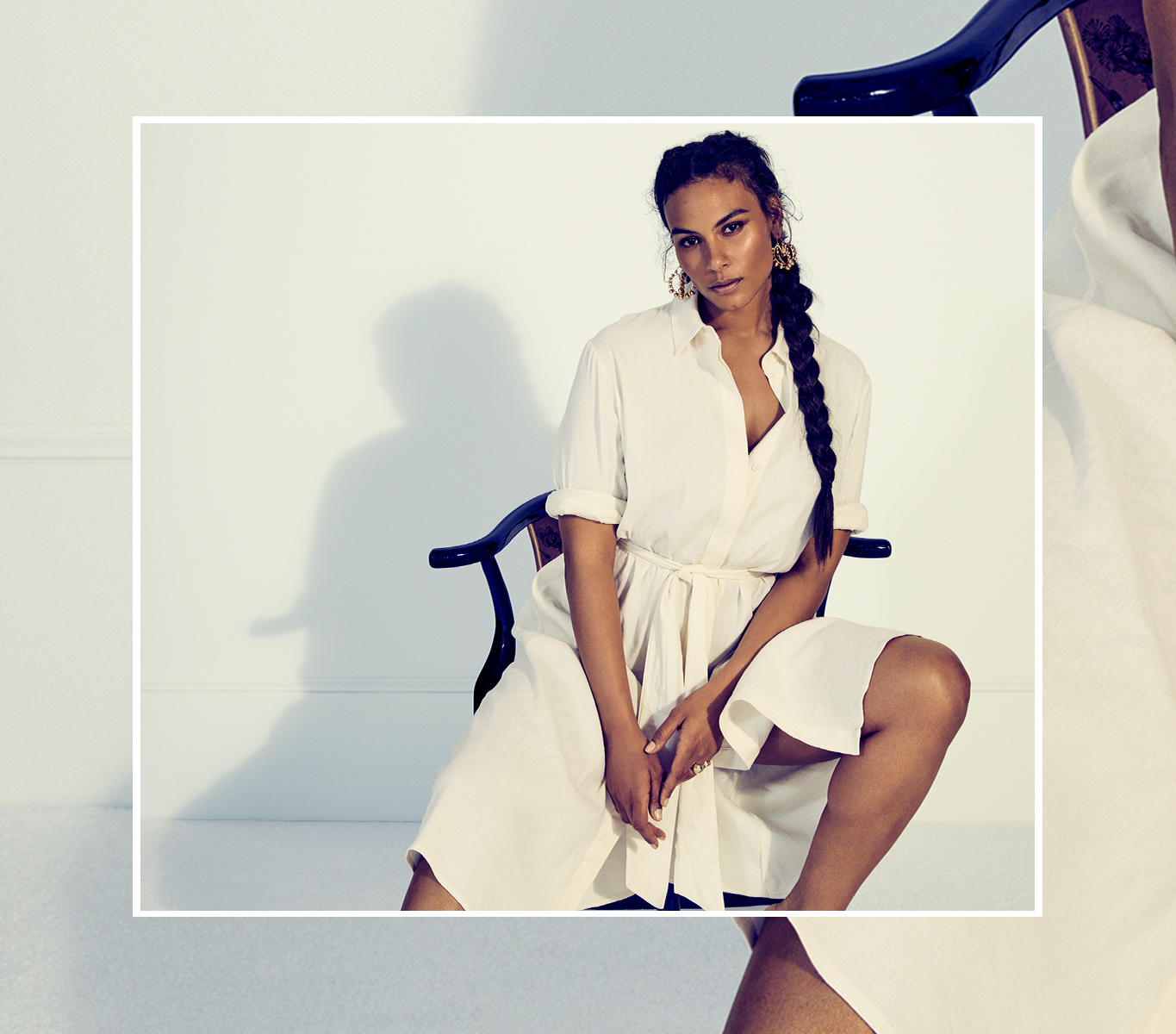
It’s no secret that the fashion industry has long grappled with inclusivity—not only when it comes to addressing systemic racism but also every time the industry prioritizes profitability over size inclusivity. But did you know that the average American woman is a size 16 to 18, and the market is poised to grow to $24 billion this year? While many luxury brands did (and still do) drag their feet to address inclusive sizing, 11 Honoré has made it its mission since 2017 to make high-fashion accessible for all women through its curation of plus-size luxury collections on its platform.
Basically, 11 Honoré has been out here doing the work, and now the brand is taking it to the next level by launching its own private label. Its first-ever collection is dedicated to creating timeless wardrobe staples available in sizes 12 through 26 and was designed by a plus-size Black woman. If that just gave you goosebumps, then you’re definitely going to want to keep reading. We spoke with the label’s design director, Danielle Williams Eke, and CEO, Patrick Herning, about why this new label is so important, the inspiration behind the line, and inclusivity in the fashion industry. But first, let us introduce you to Williams Eke.
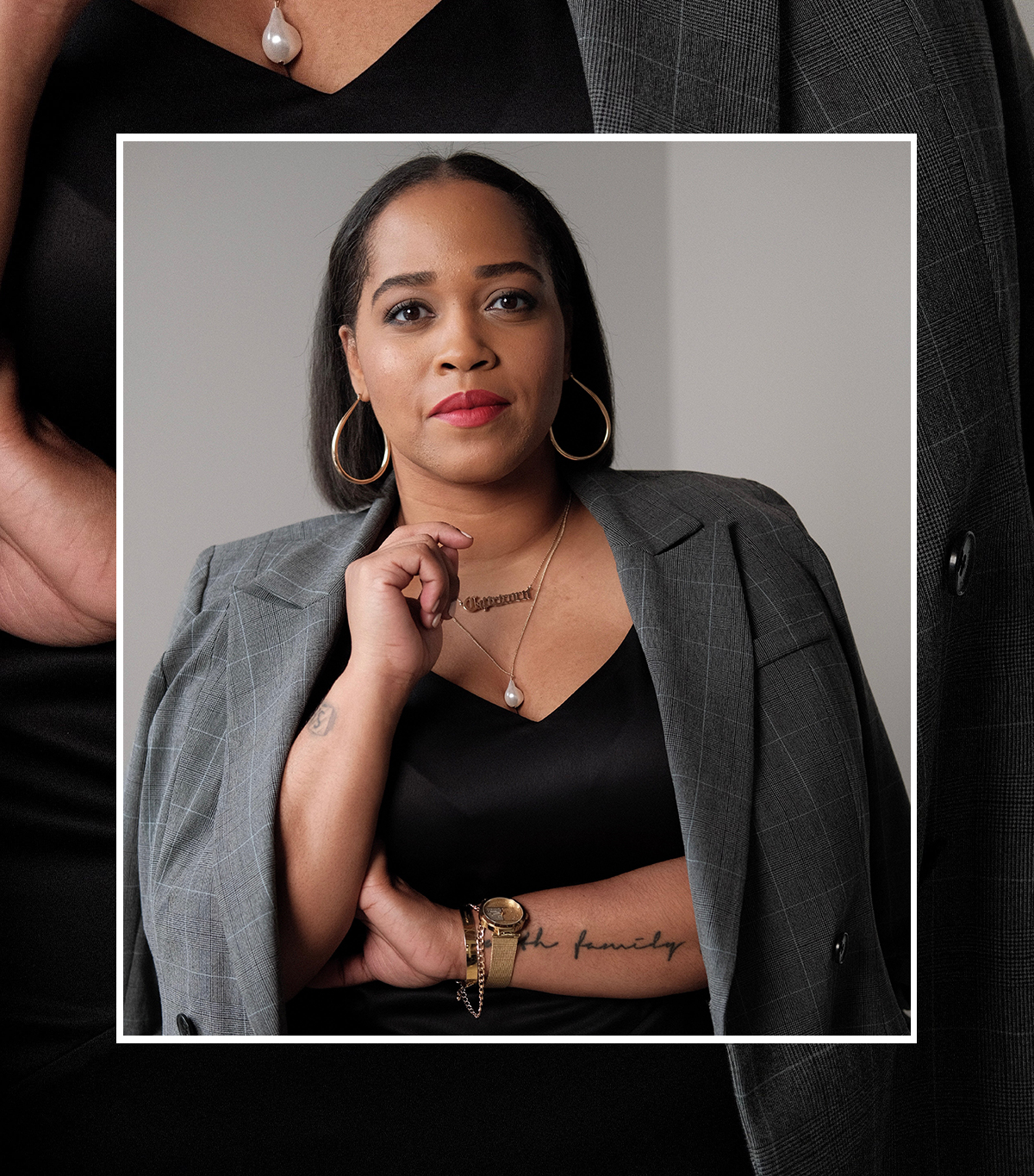
For those who are unfamiliar with your work, can you tell us a little about your previous experience in the industry?
Danielle Williams Eke: I have been in the fashion industry for 10-plus years, focusing on plus-size fashion for the last eight-plus years. My roles within the industry have ranged from assistant designer to design director and span across RTW, activewear, and occasionwear.
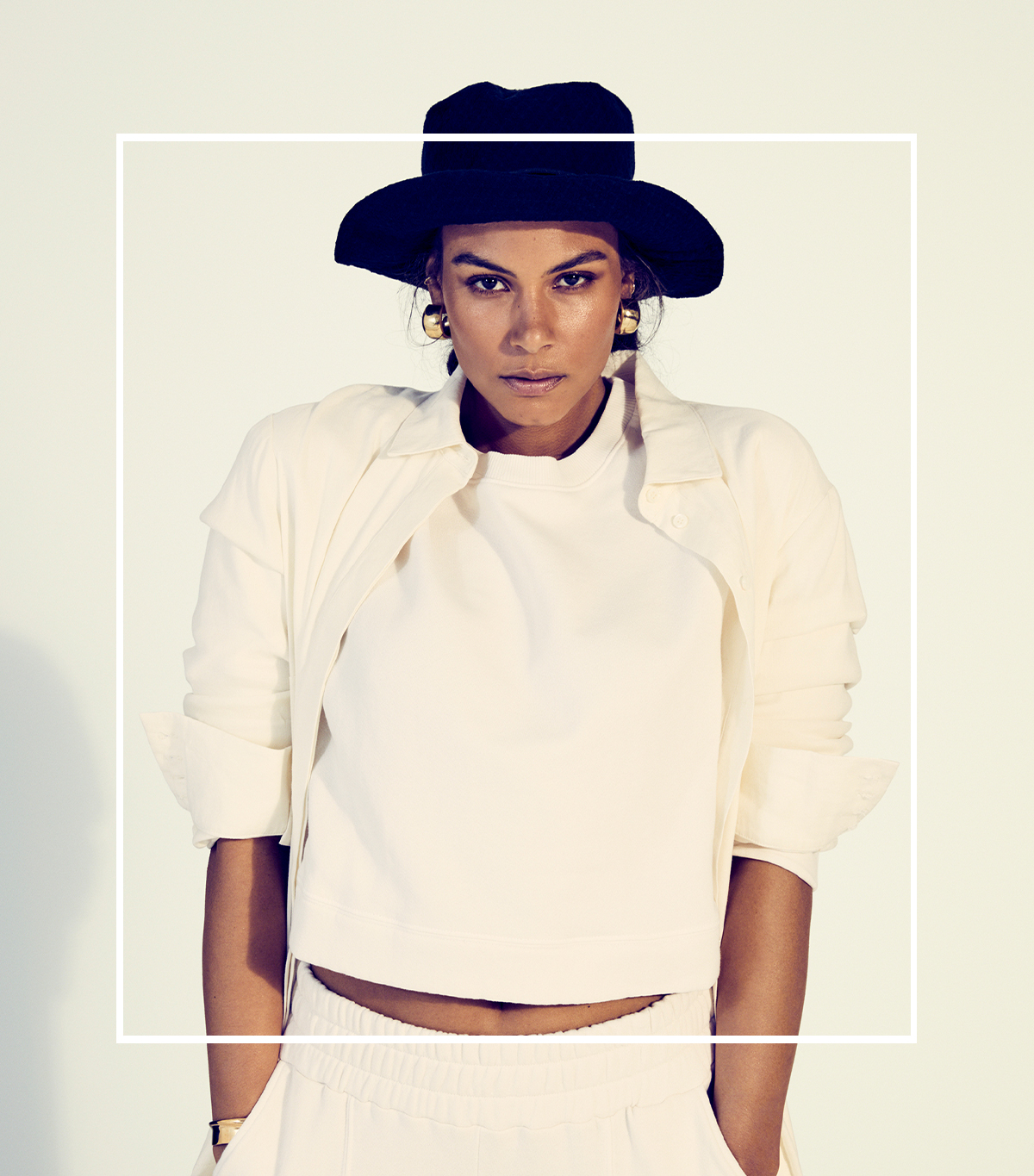
What I love about 11 Honoré is that they’ve always walked the talk, and the launch of the new label is just that. Can you tell us a little about how it came about that you’d be spearheading design for its first private label?
DWE: It all started with my first interview—it was a conversation with CEO Patrick Herning about what his vision was for the brand. I was initially tasked with creating a visual mood board of what I thought the brand aesthetic would be. When I presented the visual mood board to Patrick, it was very clear that we were both on the same page and continue to be on the same page in regard to the brand’s direction.
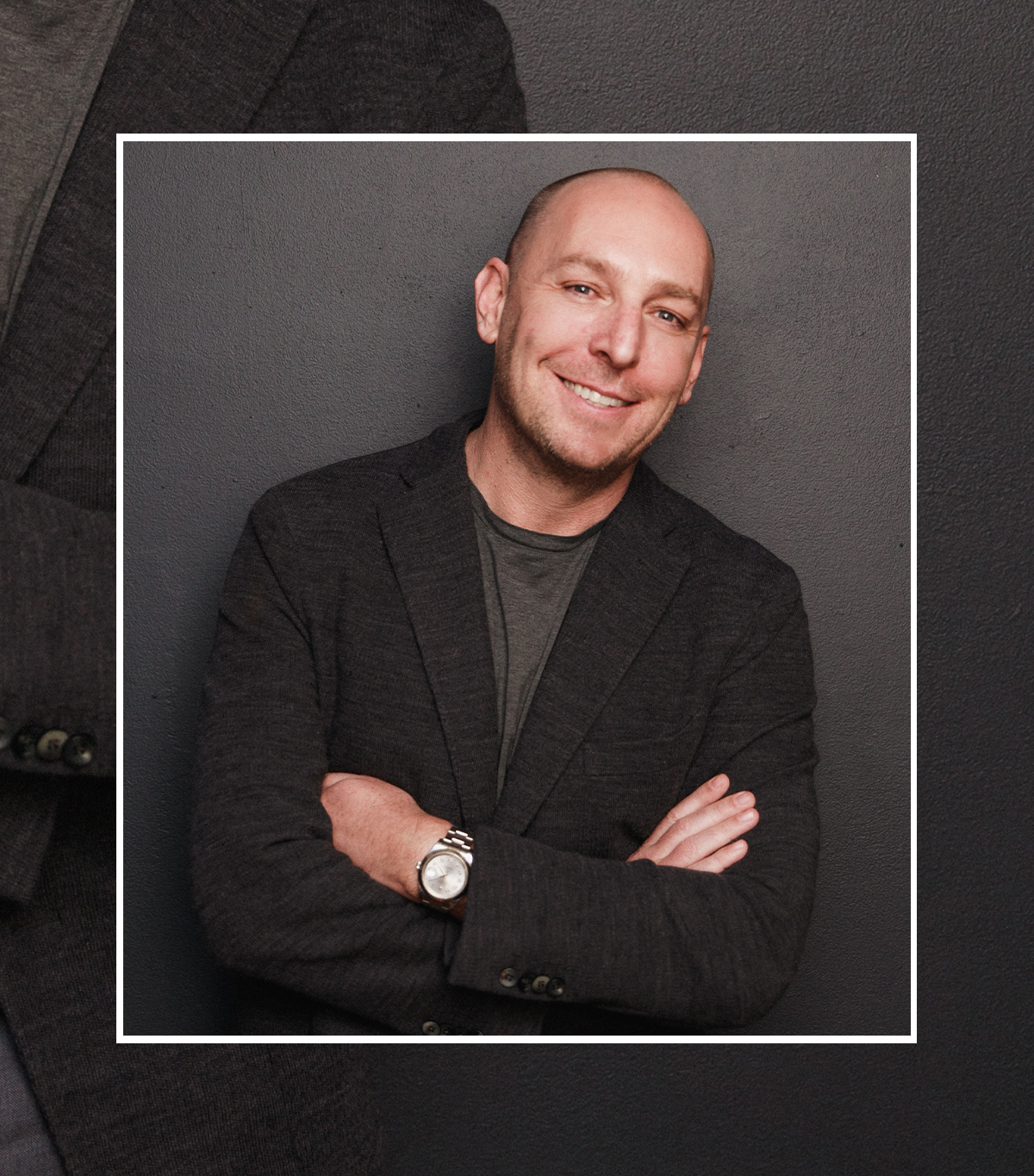
The brand has been known for its curation of high-end extended-size collections. What made the brand decide now was the time to launch its own private label?
Patrick Herning: To ensure a successful private-label collection, you really need to identify what is missing and fill that void. We have such an incredible community of supporters and customers, coupled with years of multi-brand sales data, combining that to deliver on exactly what she is looking for and is unable to find. To do this successfully, time is required, and we are confident now, after three years of being the first to market, we are able to realize the full potential of this collection and continue to exceed our customers' expectations.
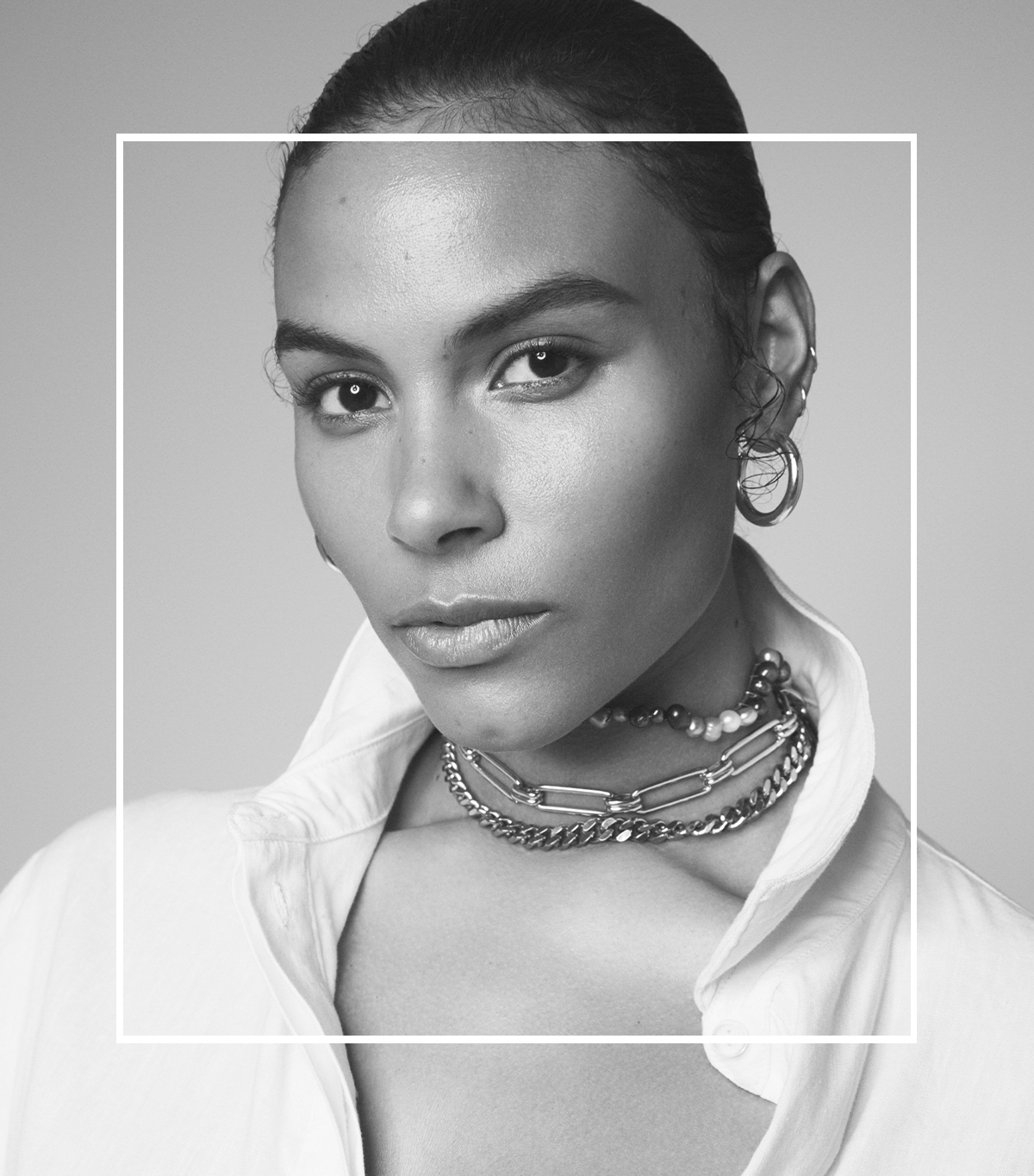
What makes 11 Honoré’s label different from other brands on the market?
DWE: The number one thing that sets us apart from other brands in the market is our focus on fit. We pride ourselves on creating clothing that fits a woman’s body perfectly—whether they are a size 12 or a size 24. Our fit process was very in-depth, as explained in more detail below, because we know how so many brands get the fit wrong, and we want to make it a priority to create beautiful, well-fitted garments for our customers.
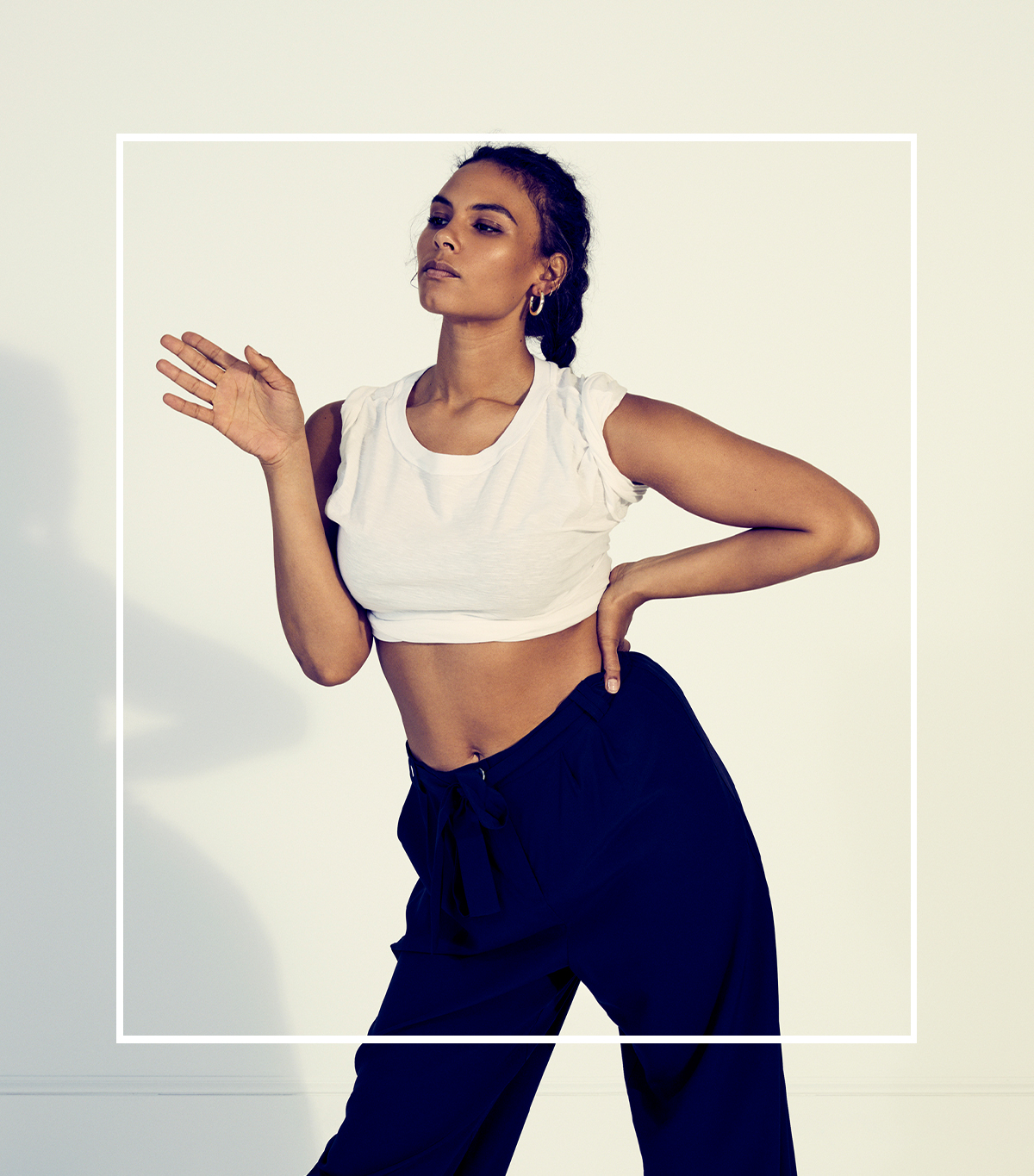
Where did you draw inspiration from for the first collection? How did you go about choosing fabrics for the first collection? What pieces did you feel you needed to create for this collection?
DWE: Now more than ever, clothing should be made to transcend trends or seasons, and that is how I’ve designed this collection. I was very much inspired by the concept of Donna Karan’s Seven Easy Pieces and how easily those seven pieces could be mixed and matched together to create endless outfits.
Understanding that as women, our lifestyles evolve day-to-day, I wanted to ensure our collection reflected that. When I started designing this collection about nine months ago, the country was in a very different space than it is today. Yet the collection feels more relevant now than it did nine months ago, which is a testament to the need for these pieces. Whether you are working from home, going on casual date nights, or taking weekend road trips, this collection provides you with all the necessary modern wardrobe staples you need to look and feel your best.
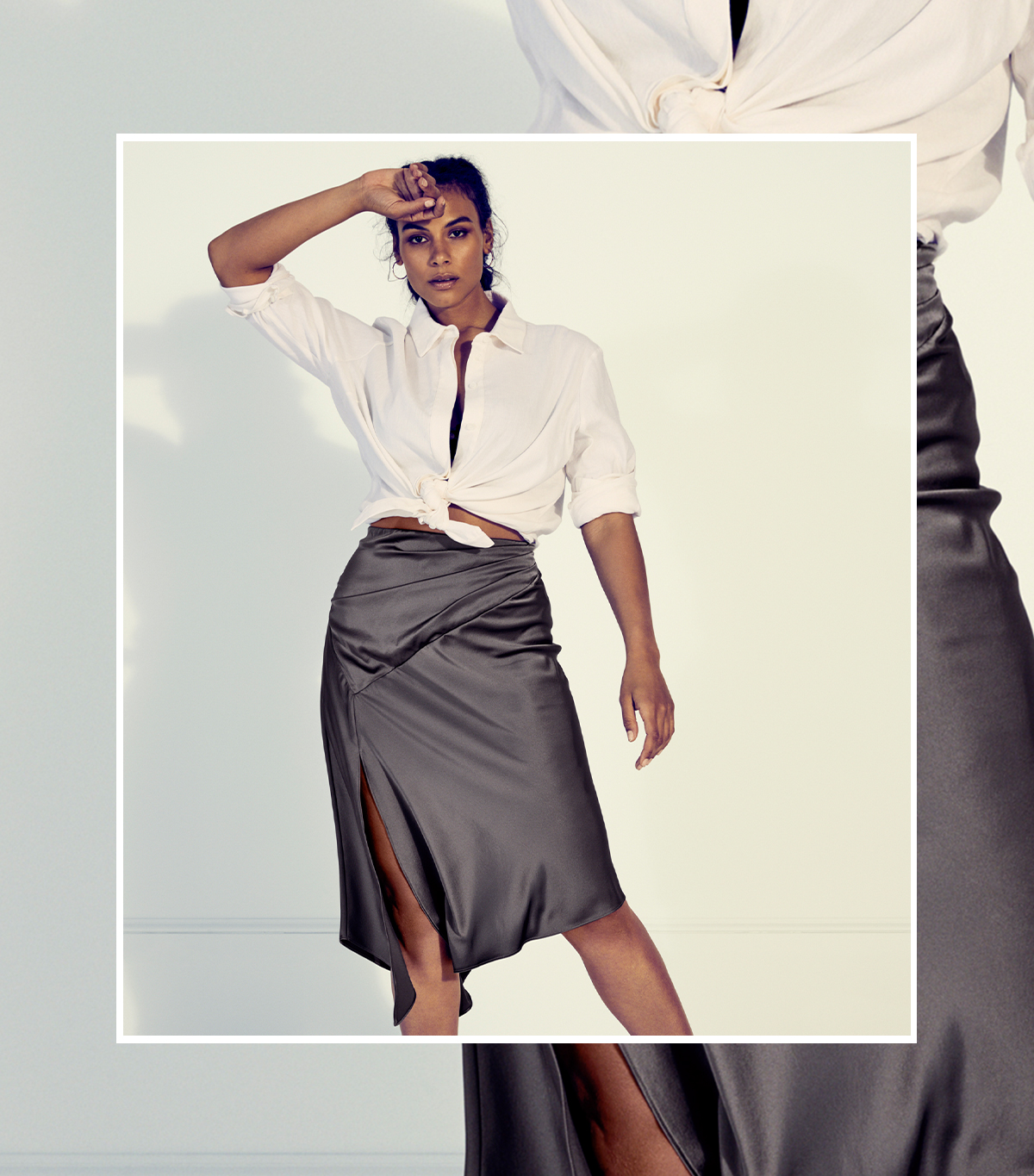
Can you tell us a little about your design process? How does designing extending sizing differ (if at all) from the "traditional” design process?
DWE: The first step in the process was to get an understanding of the current plus-size retail landscape, so I did an analysis of all of the brands out there to understand what was being done well and what wasn’t. From there, we started looking at straight-sized brands that we’ve admired, and we were very much inspired by the concept of Donna Karan’s Seven Easy Pieces. Like Donna Karan, we wanted to create a collection of versatile pieces that can easily be mixed and matched together to create outfits for all different occasions.
Once we decided on the concept, we understood that the fit process is by far the most crucial part of designing a collection. Many brands, both exclusively plus-size brands and straight-size brands that have introduced plus, struggle to get a perfect fit for many reasons, and we wanted to address those reasons head-on by addressing them in three parts of our design process.
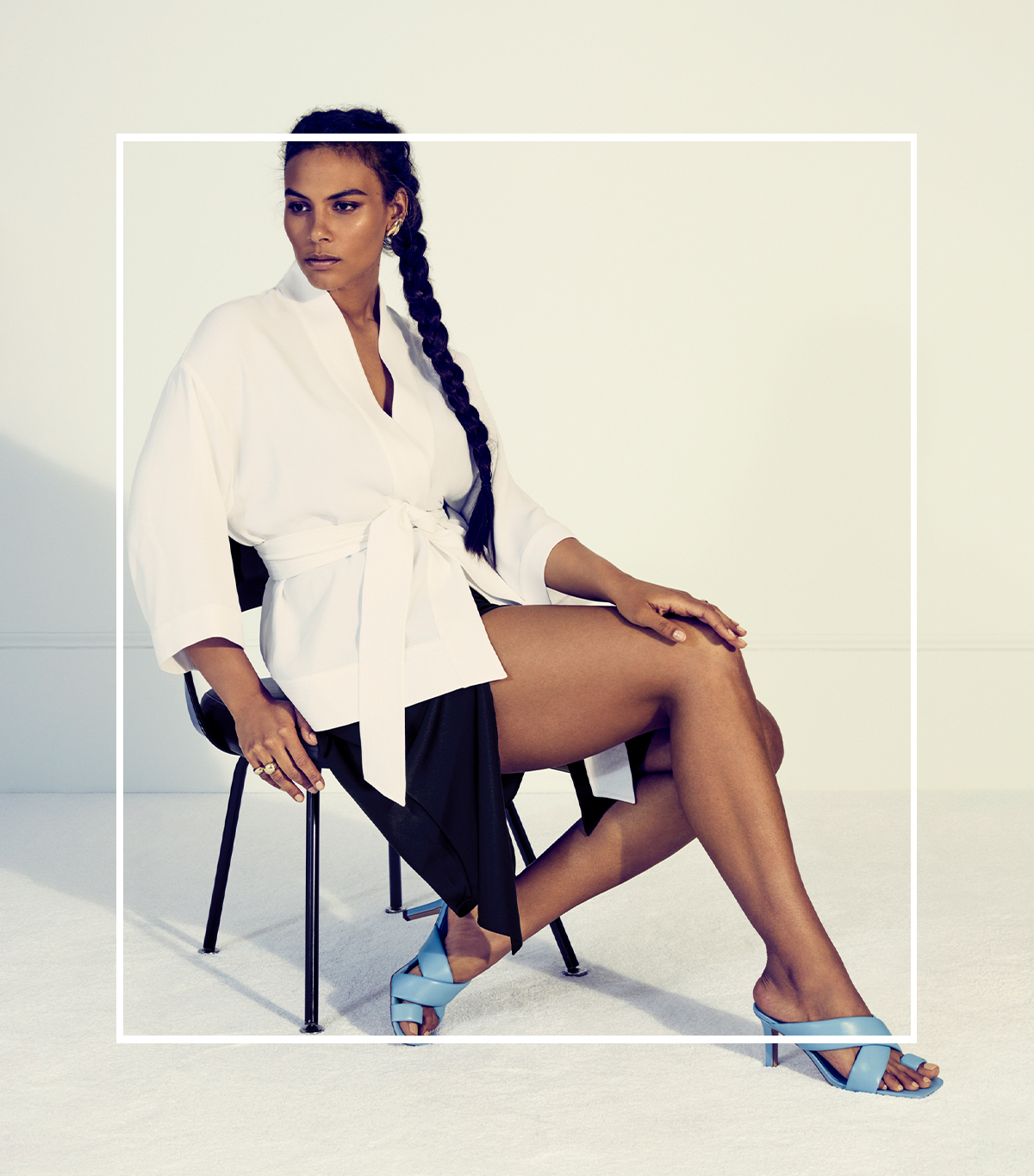
When designing this collection, we ditched the traditional fit model (many brands still fit on dress forms). It was imperative that we fit on a real, live fit model. Doing this allows us to really understand how fabric drapes, stretches, and moves with the body. It also allows for feedback from a real woman that undoubtedly improves the overall fit of our clothing.
In addition to fitting the collection on real models, we also wanted to address size grading. Our collection ranges from sizes 12 through 26. Understanding the necessary measurements to scale up to a size 26 and down to a size 12 from a base size 18 requires a lot of work. Our technical designer, who has over eight years of fitting plus-size clothing, was able to perfect our grade scale by using real women, ranging from size 12 through 26 with different body shapes, to try on garments, send images, and give their feedback. From that feedback, we were able to make necessary tweaks to our grade rule to make sure that our fit was consistent style to style regardless of size.
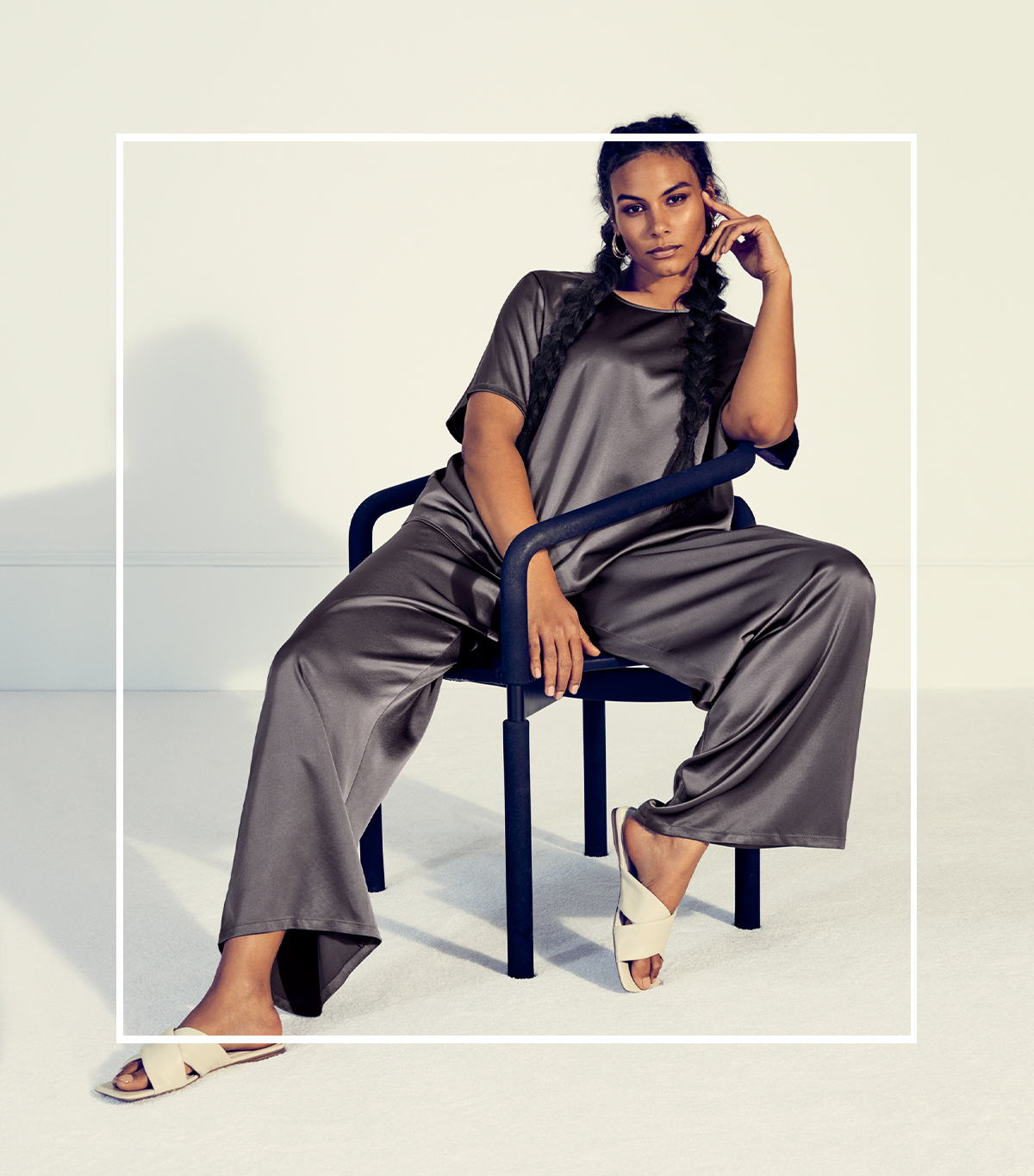
And finally, when designing the collection, we put a lot of thought into the fabric. I often see a lot of plus brands using a lot of non-stretch fabric. This alone makes fit difficult.
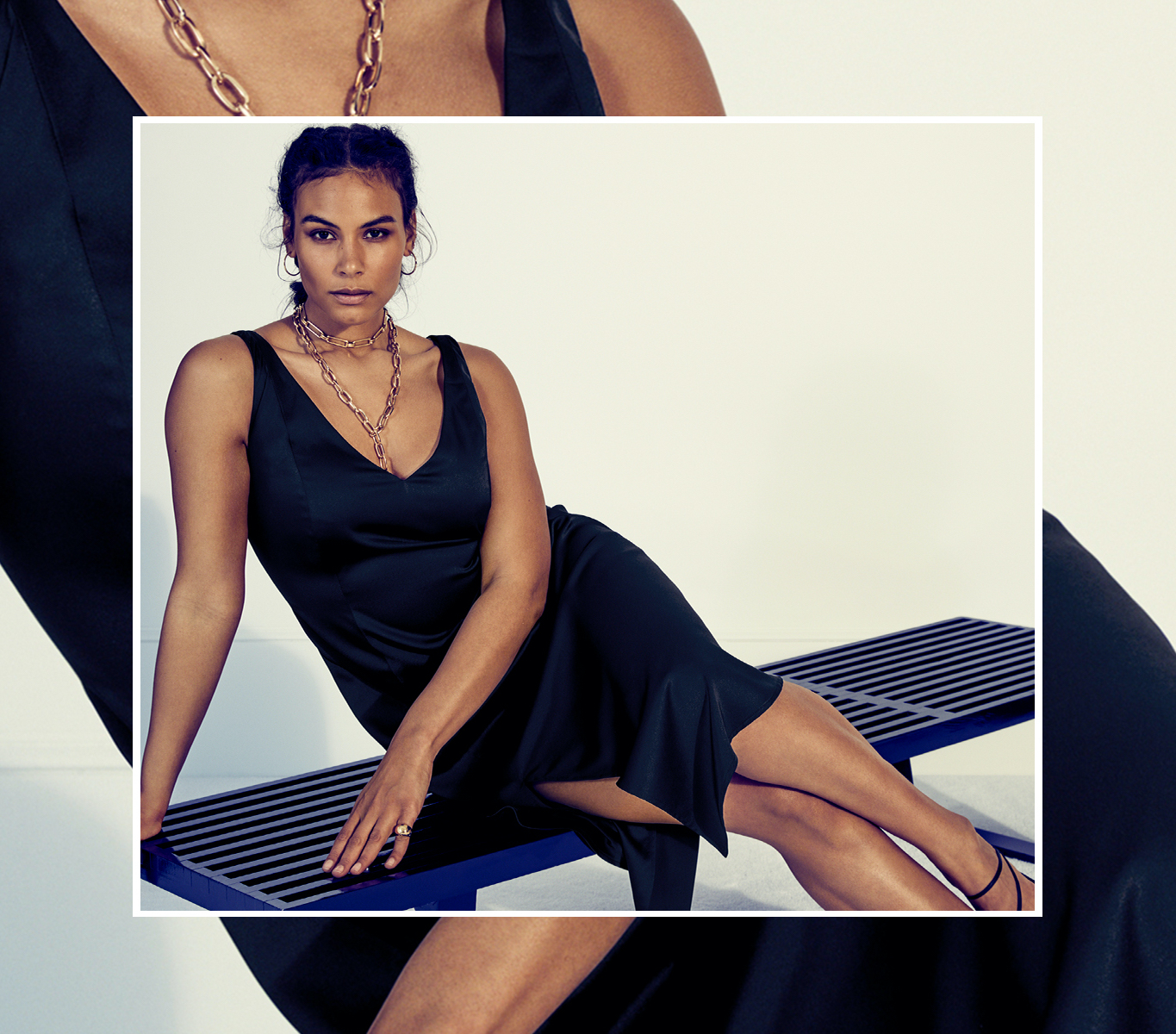
What’s the one piece from the collection that you love the most? What’s the one piece you feel every woman should have in her closet?
DWE: My favorite piece in the collection is the Black Nia Dress—it is a classic, black dress that everyone needs in their wardrobe. It is so versatile and can easily transition from day to night!
Shop Williams Eke's favorite piece:
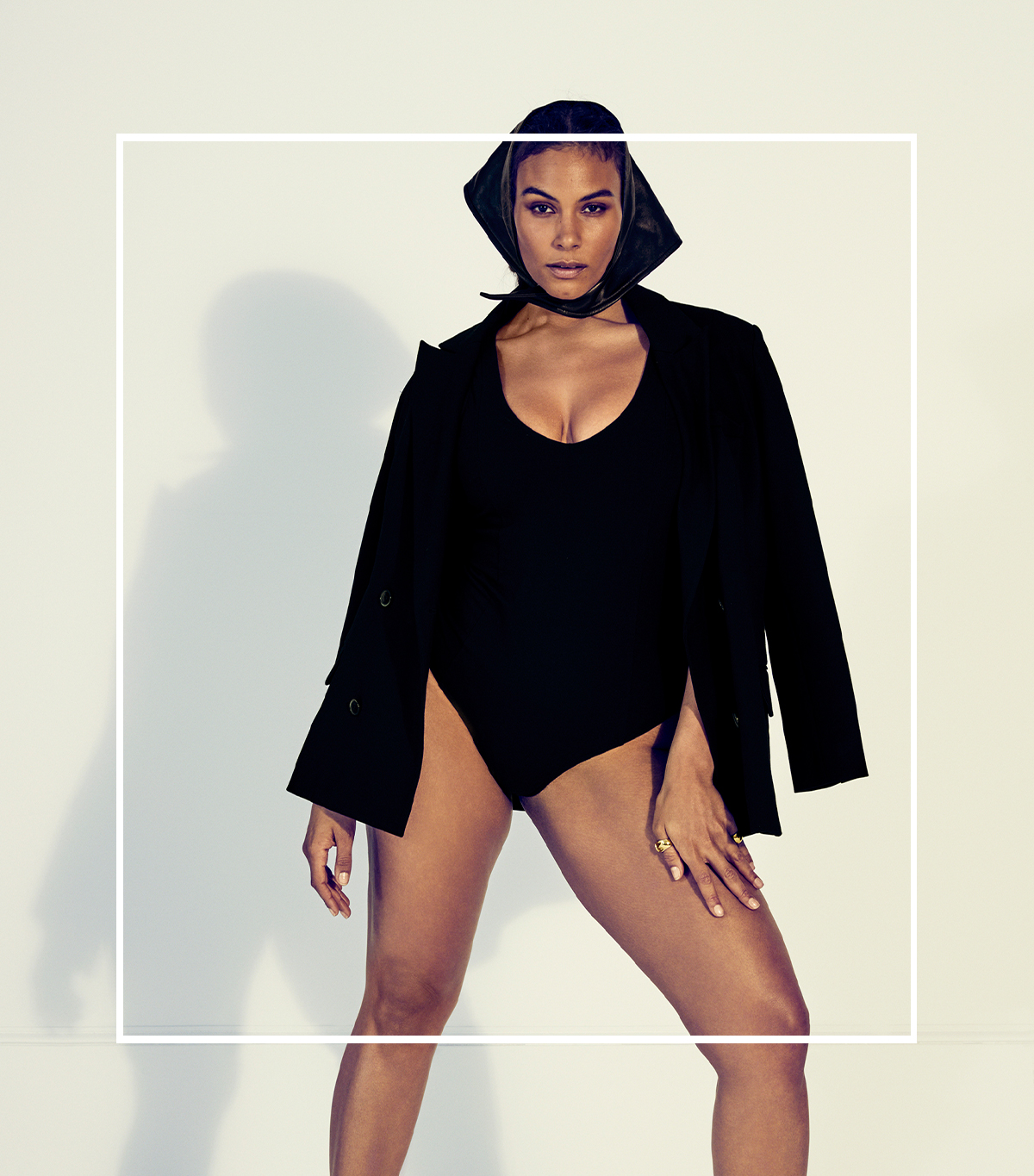
How has your experience as a BIPOC informed the way you approach designing (if at all)? How has your personal style informed the way you approach design decisions?
DWE: I believe that every designer, regardless of race, draws on their past experiences, both personal and professional, to inform aesthetic and design direction. I don’t think being a Black woman necessarily informs the way I approach designing any different than a white counterpart. As far as my personal style goes, this collection is really what I, like so many other plus-size women, have been looking for for so many years. The great thing about this collection is that it caters to all styles. The pieces are classic and versatile yet can be styled in a way that’s true to your personal aesthetic.
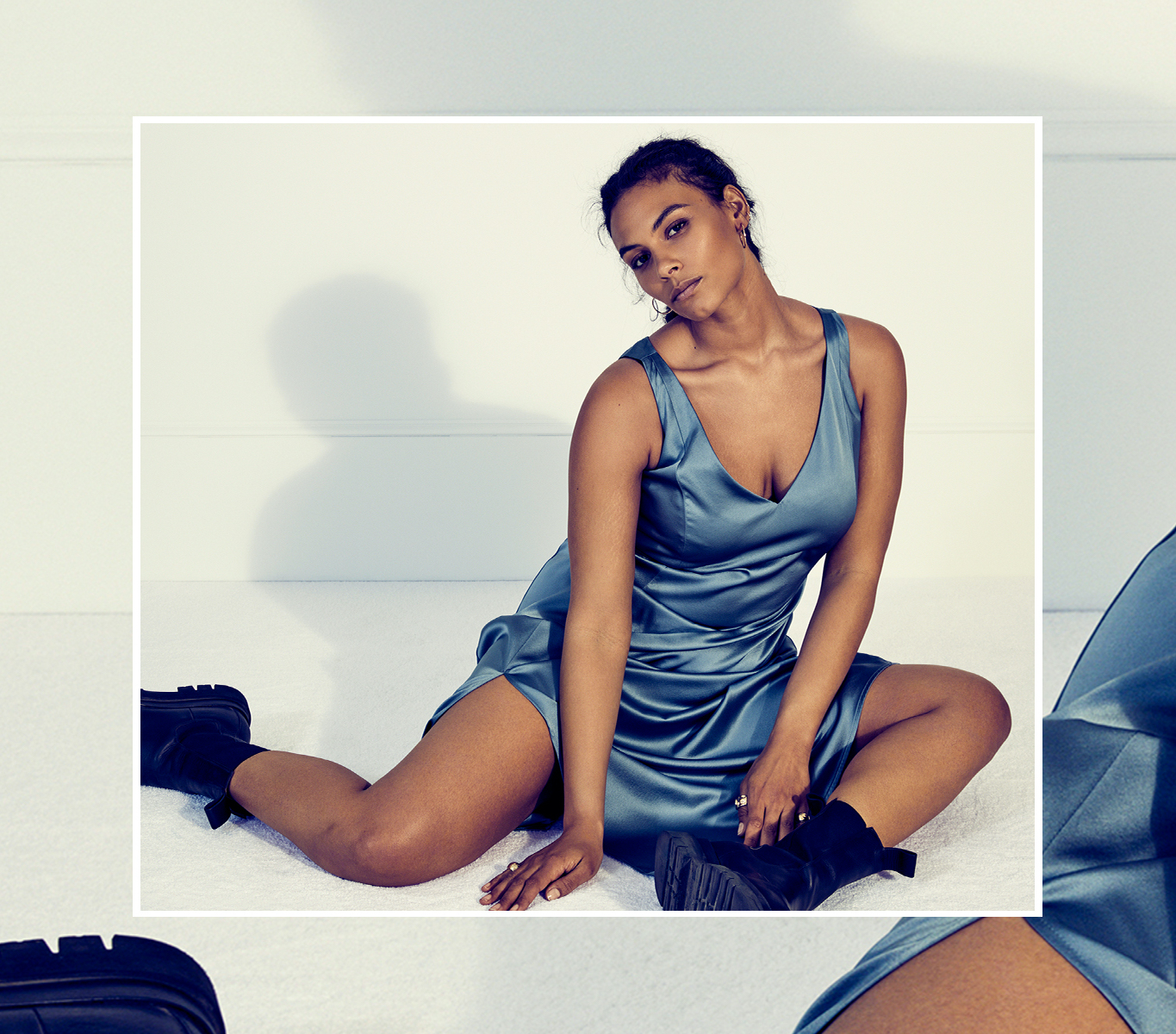
How do you think (if it all) there’s an intersectional element when it comes to the industry predominantly cutting out not only BIPOC from the industry but also curvier women?
DWE: I just think the history of the fashion industry has been to uphold an "image,” and oftentimes that image has been the skinny white woman. But this image doesn’t fully reflect the world we live in. It’s time for the fashion industry to reflect the people it serves, which includes, race, body size, and shape, among others.
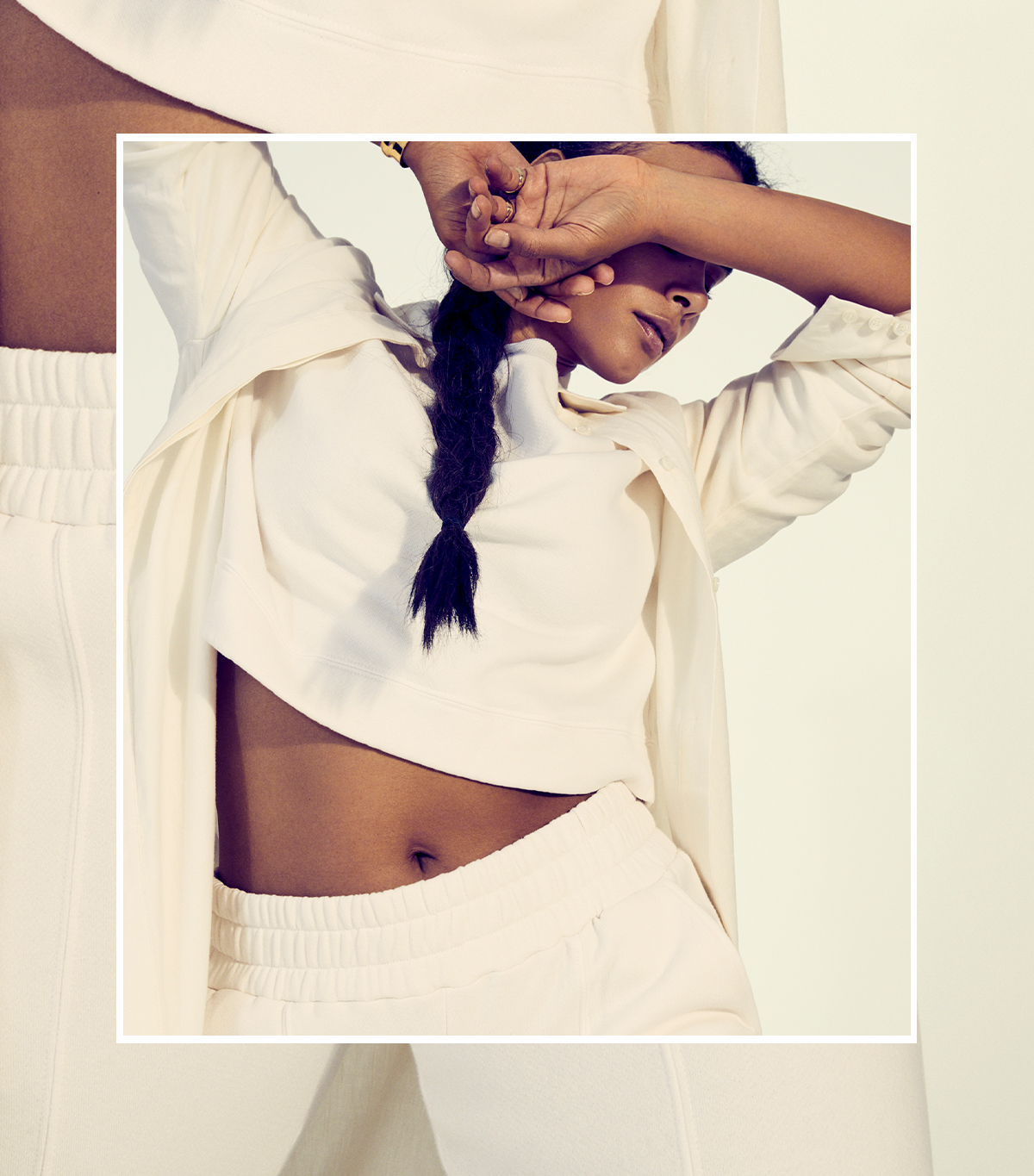
Currently, we’re witnessing the fashion industry being held accountable for its racial inequity. What do you hope can come out of this moment?
DWE: My hope is that the industry can actively change and disrupt the systems that have excluded people of color for so long. This means intentionally hiring, developing, and promoting Black people within the industry.
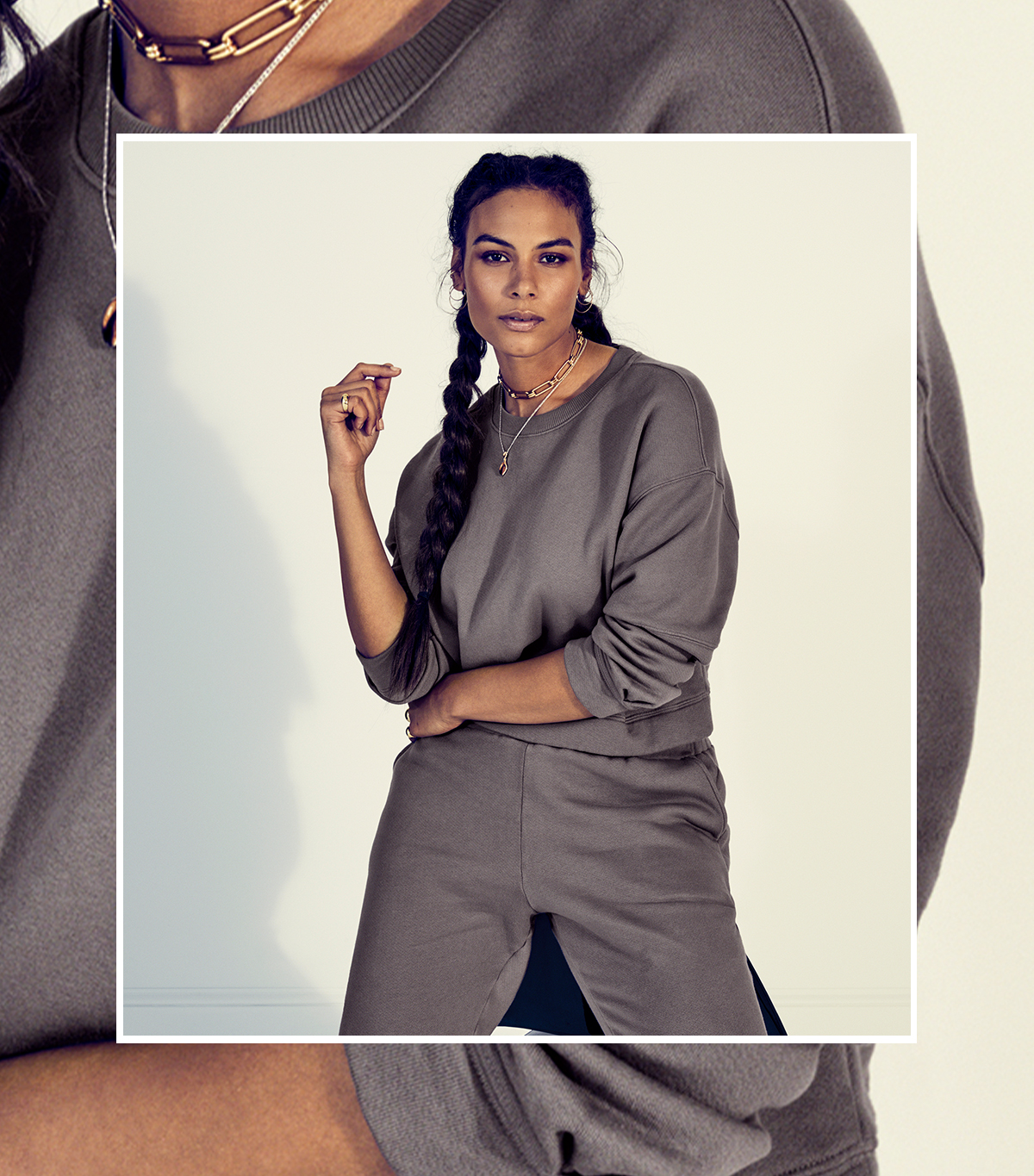
What’s your hope for the future of fashion when it comes to sizing and body inclusivity?
DWE: My hope is that we continue to be seen and heard. I would love to see more inclusivity on the runway, in the media, and in apparel assortment. We have definitely seen strides over the last few years, but we still have a ways to go, and I hope to continue to change fashion for the better with the 11 Honoré team.
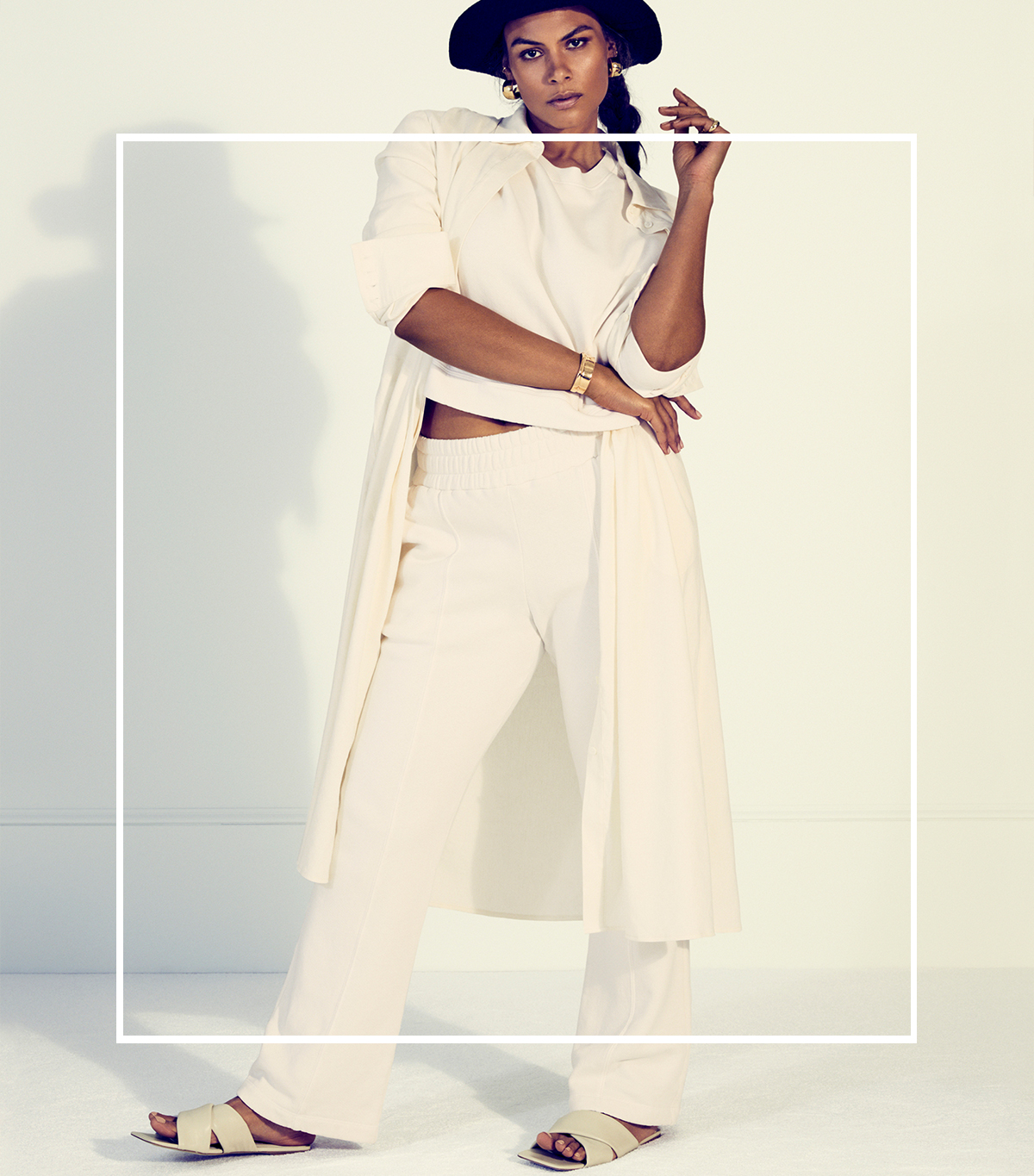
What do you hope other high-end brands can take away from the launch of this collection?
DWE: I hope that other high-end brands really start to think about the women they’re designing for, as 70% of women in America are a size 14 and up. In the industry now, we see a lot of fast-fashion companies creating plus-size lines. However, we are missing those quality pieces in the designer and contemporary space. I was honored and excited to join the 11 Honoré team because they have been at the forefront of plus-size fashion—they understand who their customer is and cater to all women. We are successful, we have money to spend, we have style, and we want to invest in our clothing, just like anyone else.
Shop more pieces from the collection…
Next: 10 Designers Speak Candidly on Why the Industry Is Plus-Averse
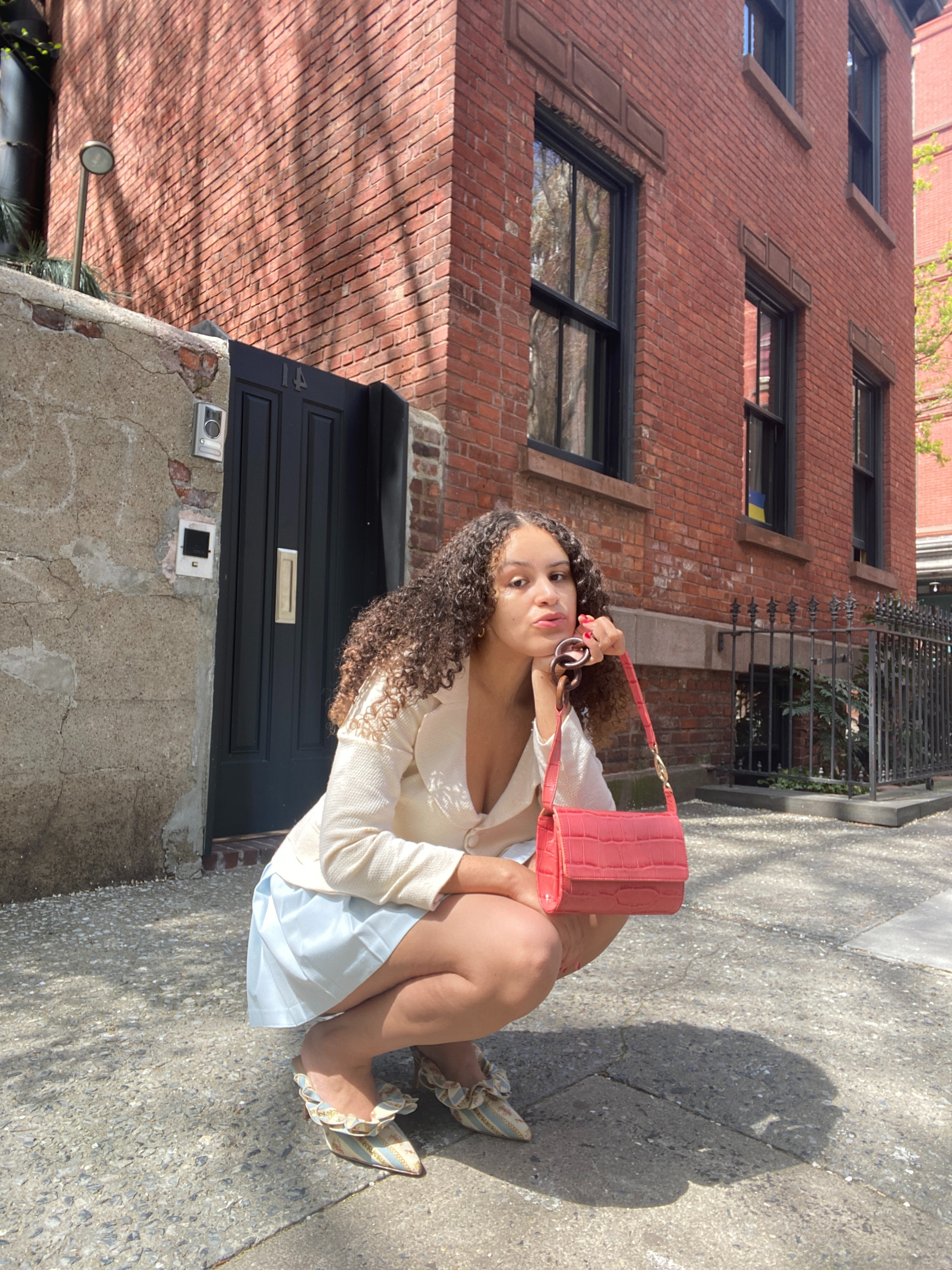
Jasmine Fox-Suliaman is a freelance writer and editor living in New York City. What began as a pastime (blogging on Tumblr) transformed into a lifelong passion for unveiling the connection between fashion and culture on the internet and in real life. Over the last decade, she's melded her extensive edit and social background to various on-staff positions at Who What Wear, MyDomaine, and Byrdie. More recently, she’s become a freelance contributor to other publications including Vogue, Editorialist, and The Cut. Off the clock, you can find her clutching her cell phone as she's constantly scrolling through TikTok and The RealReal, in search of the next cool thing.
